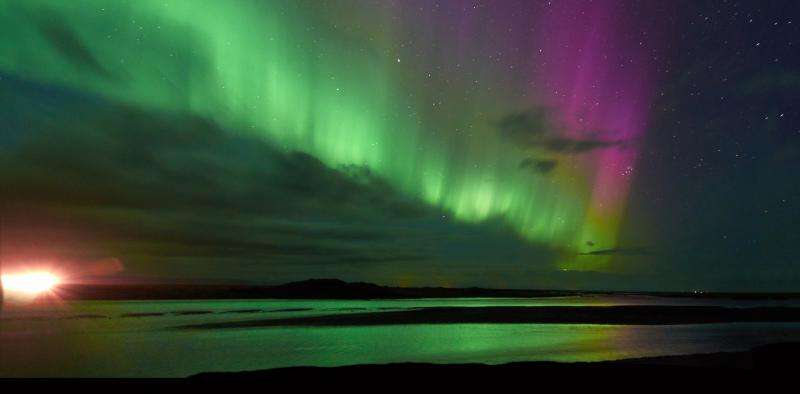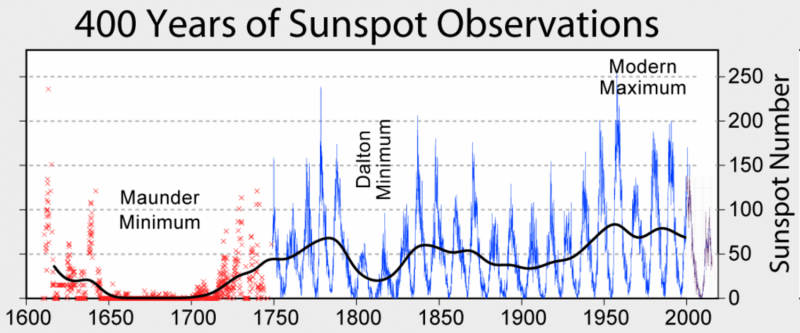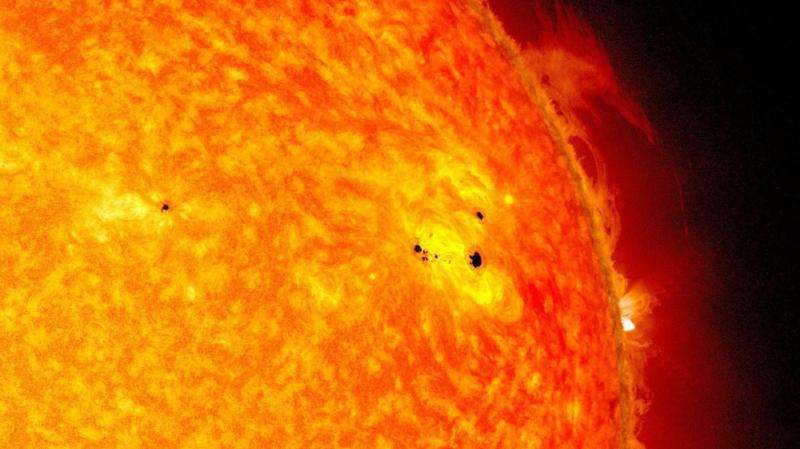Don't panic—the northern lights won't be turning off anytime soon

The northern lights are nature's very own magnificent light show. They are the mesmerising end result of electrically charged particles from the sun colliding with the Earth's upper atmosphere. Though more frequently witnessed from the polar regions, the UK and other places on similar latitudes are lucky enough for the aurora borealis to occasionally grace their night sky.
But recent reports now claim the phenomenon may no longer be visible from places such as the UK – instead confined to the North Pole. But is this correct?
The northern lights are driven by activity on the sun and the sun's activity waxes and wanes over an 11-year period known as a solar cycle. The number of large-scale aurora events, the type that is visible from places such as the UK, tends to follow this cycle. But each solar cycle is different, with the maximum and minimum activity varying between each cycle.
Predicting solar activity
Current predictions suggest that we are headed for a period of particularly weak solar cycles, where the solar maximum of each cycle will not result in much solar activity. We call this a grand solar minimum.
Grand solar minimums can last for several decades or even centuries and have occurred throughout history. Although solar output does decline during these periods, it doesn't mean that we are heading for a new ice age.
A study recently published in Nature has modelled the perhaps most well-known grand solar minimum, called the "Maunder minimum". This particular grand solar minimum started in 1645 and finally ended 70 years later. During this time only 50 sunspots, structures on the sun that act as a measure of its activity, were observed. This is compared to the 40,000-50,000 that we would expect during a period of "normal" activity lasting that long.

The authors of the study found that during the Maunder minimum, the solar wind, which drives the aurora, dramatically weakened. They also illustrate that as the solar wind weakens, so too will the aurora.
If we are in fact heading into a new grand solar minimum, it stands to reason that we might see less of nature's beautiful spectacle. But does that mean we'll stop seeing it from the UK altogether as some have suggested?
Lessons from the past
Looking back at historical records of aurora sightings might provide the answer. Fortunately, a study has done just that. The authors analysed auroral observations during two grand solar minimums– including the Maunder minimum. They found that the number of aurora sightings from below 56° magnetic latitude (which is similar to geographic latitude but measured from the magnetic pole rather than the geographic pole) did indeed decrease. But they did not stop altogether.

That value of 56° magnetic latitude is actually quite important as it happens to coincide with the magnetic latitude of the UK (more specifically somewhere close to Lancaster, England).
So what's my prediction for the aurora over the next century? If the models are correct and we do head into a grand solar minimum, then solar activity is going to decrease – and remain at very low levels for decades to come. With this decrease in solar activity, aurora sightings from outside the polar regions are going to become rarer. But that doesn't necessarily mean they'll stop altogether. It also isn't certain that we are heading for a grand solar minimum or – even if we are – when it might occur.
So while that elusive light show might get even more elusive, don't fret just yet: the northern lights aren't going out anytime soon.
Provided by The Conversation
This article was originally published on The Conversation. Read the original article.![]()





















